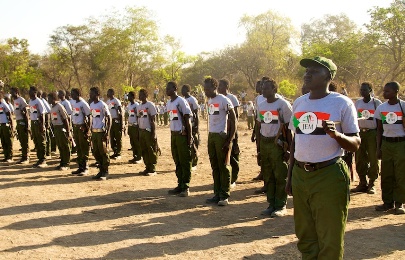Sudan’s spy-chief claims that Juba agreed to abandon Darfur rebels
December 22, 2015 (KHARTOUM) – Sudan’s spy-chief Mohamed Atta claimed that South Sudan’s government had earlier agreed to expel the Darfur rebels from its territory but refused to take the same measure against the rebel Sudan People’s Liberation Movement/North (SPLM-N).

“When we sat with South Sudan’s government, they agreed to drive out the Darfur groups which are present in their territory into Sudan but with regard to the SPLM-N, they chose to mediate,” he said.
“That means they could abandon the Darfur movements but not the SPLM-N, the South [Sudanese] government has a desire to help and provide support to the SPLM-N”, he added.
Atta said that Khartoum told Juba that when they push the Darfur rebels into Sudan, the Sudanese army would clash with them and drive them back to South Sudan, describing the issue as “simply playing”.
“We proposed to them [South Sudan] to adhere to the [security agreement signed between us] and strip the Darfur rebels of their vehicles and arms, they said they can’t do that and we assured them that they could because the [Darfur] movements’ forces are weak,” he said.
The spy-chief pointed out they asked Juba to disarm the Darfur rebels in order to open a new page in relations particularly as the leader of the Justice and Equality Movement (JEM) Gibril Ibrahim wouldn’t be able to rebuild his forces under the current circumstances following the Gouz Dango battle.
Last April, the Sudanese government said its forces routed JEM fighters who carried out a major offensive on South Darfur state from South Sudan’s territory for the first time since several years.
Pictures and videos circulated in the social media and forums showing dead bodies, detained rebel fighters, and military vehicles captured from the rebels by the Rapid Support Forces (RSF) who ambushed the attacking force near the border with South Sudan.
Later, JEM admitted they have lost the Gouz Dango battle against the Sudanese troops but minimised its impact on their determination to defeat the regime of President Omer al-Bashir.
Atta expected that Ibrahim and his forces would either be disarmed or expelled from South Sudan, saying he doesn’t have many options.
“He [Ibrahim] could go to the Central African Republic (CAR) and so his forces would be driven far from the battles scenes because the [CAR terrain] is nothing but a forgotten jungles and he won’t be able to keep his soldiers for a long period,” he said.
He saw that the presence of JEM fighters in South Sudan allows them to enter Sudan and escape again, saying they could no longer launch attacks in Darfur because the conditions on the ground have changed.
“If he [Ibrahim and his fighters] sought to go to Libya, it would be difficult [for him] because we have rapid forces that could follow him,” he added.
Atta said the other available option for Ibrahim is to accompany the top leaders of the JEM on a plane to Libya where he could think of rebuilding his movement, describing the move as “difficult but not impossible”.
The spy-chief underscored that backers of the rebellion in Sudan including the NGO’s, western bodies and international community who thought that Darfur rebels were able to put pressure on the government have stood by the SPLM-N side during the dispute over the presidency of the rebel umbrella Sudanese Revolutionary Front (SRF).
On 18 October 2015 and after a five-day meeting in Paris, three groups from Darfur region – JEM, Sudan Liberation Movement Abdel Wahid al-Nur (SLM-AW) and Sudan Liberation Movement (SLM-MM) – plus a splinter faction of the Democratic Unionist Party led by al-Tom Hajo announced the election of Ibrahim as chairperson of the rebel umbrella replacing the SPLM-N leader Malik Agar who leads the alliance since its creation.
Since, Agar and Gibril issue statements in the name of the rebel alliance, while reports commenced to mention the existence of unannounced divorce between the Sudanese rebel groups in Darfur region and the SPLM-N.
Atta further advised Ibrahim to assess the situation before it is too late, saying the best option for the JEM leader is to engage in dialogue and peace talks with the government because all other options are “catastrophic”.
He pointed that Ibrahim wouldn’t be able to rebuild his movement militarily, saying he suffers from internal divisions because he is being accused of running the movement along tribal lines.
(ST)
